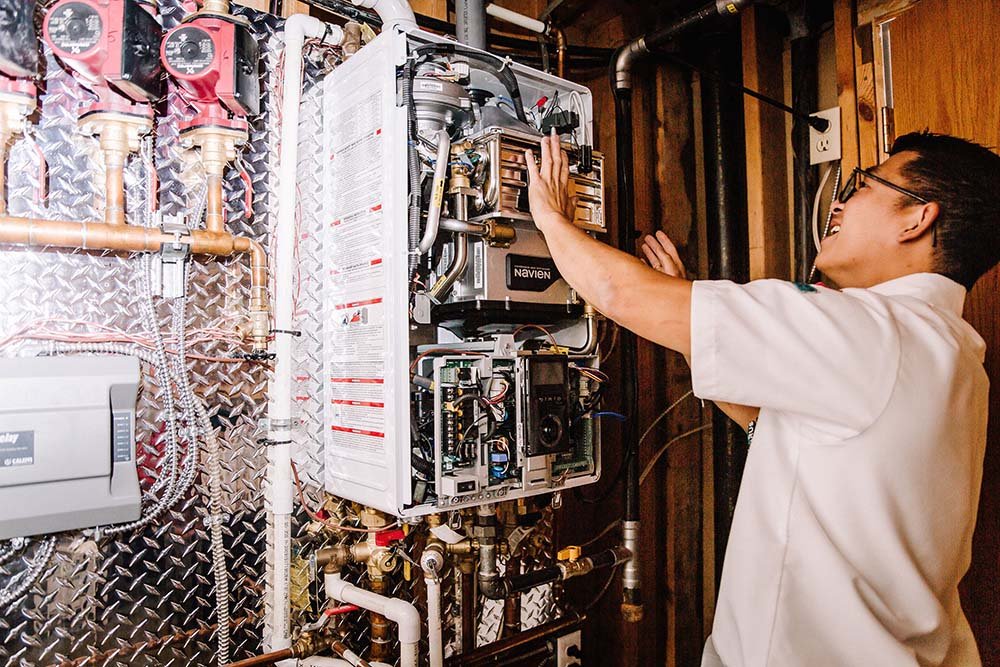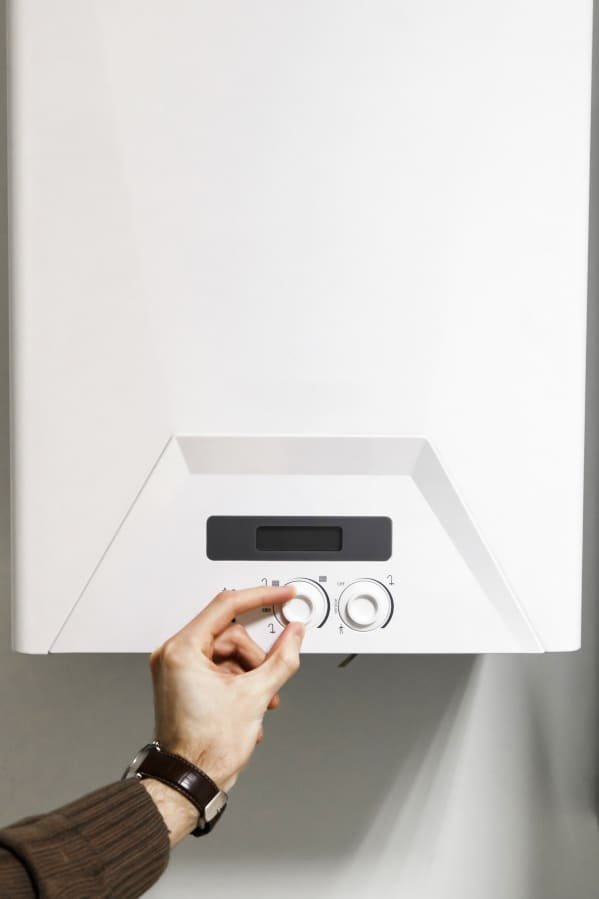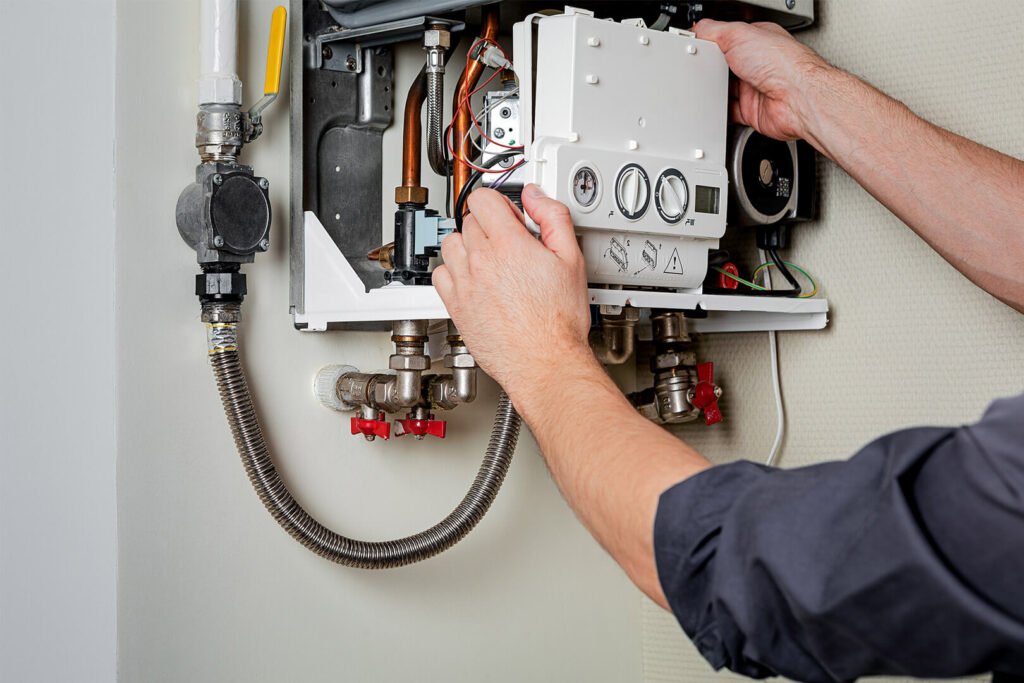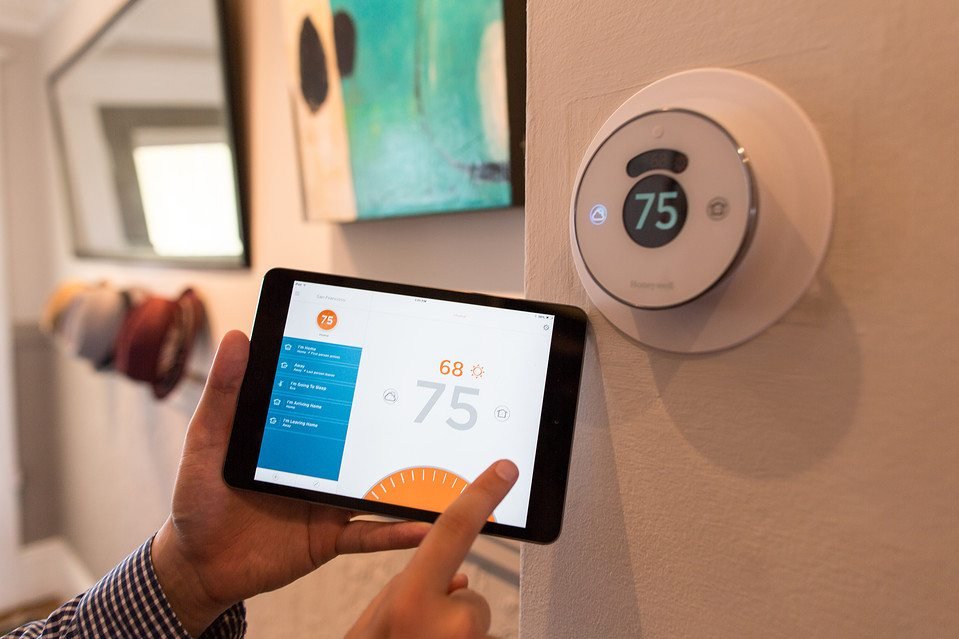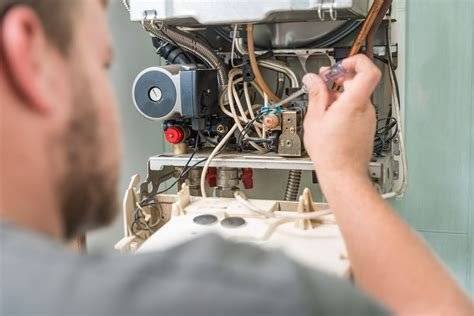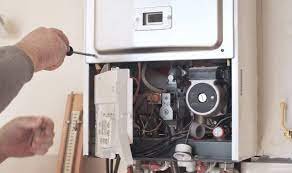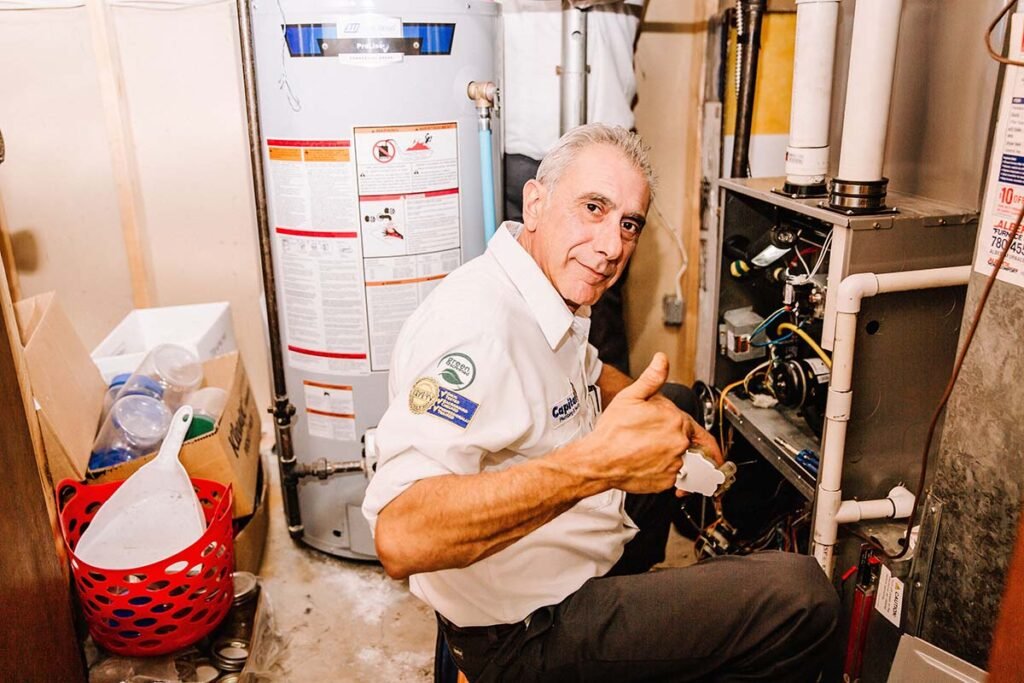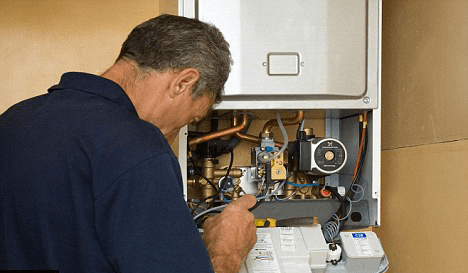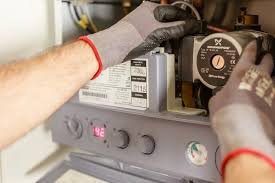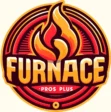Furnace Installation Nisku - Your Trusted Heating Experts
Furnace Pros Plus is your reputable partner for all your heating requires. With years of experience, we concentrate on delivering superior heating solutions to keep your home warm and comfortable. Our team of experienced service technicians commit themselves to offering specialist heating system setup, upkeep, and repair work services. We understand the importance of an effectively functioning heating system, specifically during the chillier months. We focus on efficiency, cost, and client complete satisfaction in every project (big or small). Whether you require a new heating system, a regular check-up, or emergency repairs, count on Furnace Pros Plus for trustworthy and efficient heating services that ensure comfort and comfort.
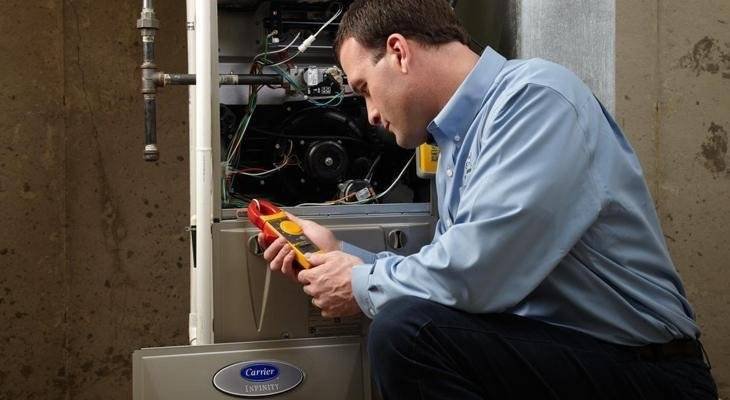
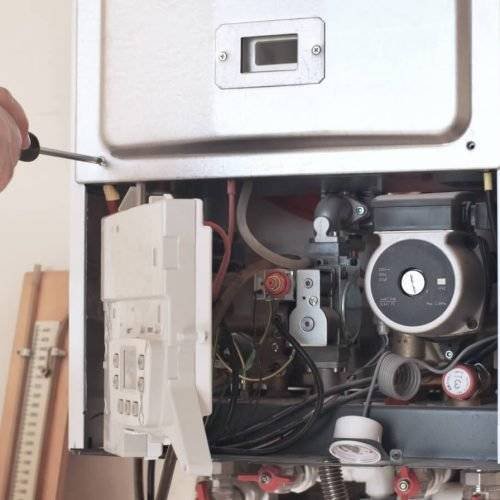
Who Are We?
Residential Heating Installations and Repairs
At Furnace Pros Plus, we are Nisku’s leading destination for all your property heating system setups. With a devotion to quality and a passion for guaranteeing your indoor benefit, we have become a relied on name in the heating market.
Got a furnace emergency? Contact us 24/7 at (587) 409-5683
For several years, we have devoted ourselves to providing superior heating system installations, maintenance, and repairs to house owners in Nisku. Our team of very experienced service technicians boasts comprehensive experience and knowledge in managing a wide variety of heating units, making us the go-to experts in Alberta.
Associating with heating system services, we take pride in offering efficient and trustworthy services, customizing our solutions to your particular requirements. If you require a new heater for your residence, our team will ensure a seamless installation that ensures your space stays comfortable and warm.
Routine maintenance is essential to the durability and performance of your heater, and we offer comprehensive tune-up strategies to keep your system running smoothly. Our committed specialists carry out comprehensive evaluations, identifying and handling any possible concerns without delay.
In times of unanticipated breakdowns, our swift and efficient repair services are here to save you from the cold. We understand the urgency of heating emergencies and are readily standing by to supply immediate support.
At Furnace Pros Plus, we are more than just a heating business; we are your partners in producing a comfortable and warm environment for your house in Nisku. Trust us for remarkable service, quality craftsmanship, and a devotion to your complete complete satisfaction. Your comfort is our priority, and we anticipate serving you.
How can we help you?
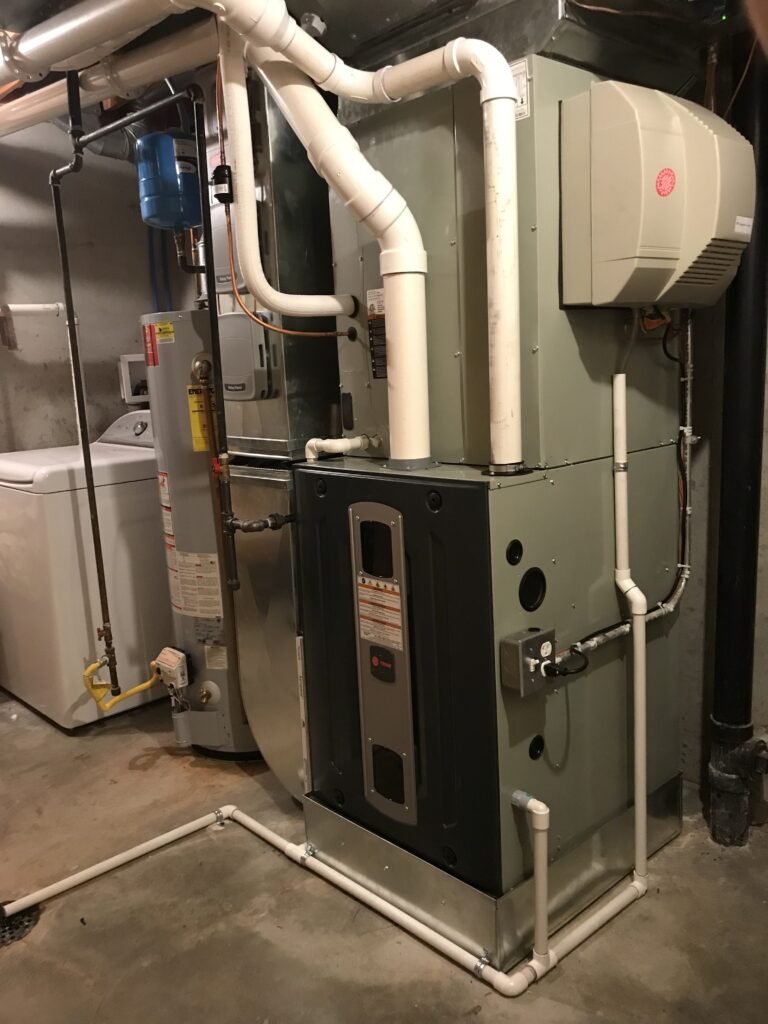
Understanding the Cost of Installing a Modern Furnace
Intro
An operating heating system is vital when it pertains to keeping a comfy and warm home during the chillier months. However, there comes a time when installing a new heating system is unavoidable.
Understanding the expenses involved in this procedure is important for house owners to strategy and budget accordingly. This comprehensive guide explores the different elements affecting the expense of installing a new heating system.
Aspects Influencing Furnace Installation Costs
Type of Heater:
- Gas Furnaces: Popular for their efficiency, they typically cost more upfront however offer lower operating expense.
- Electric Furnaces: They are less costly than gas heaters. However, electric models tend to have higher operational expenses due to electrical power costs.
- Oil Heaters: These are less typical and can be more pricey due to the expense of oil.
Furnace Size and Capability
- Square Footage: The size of your home directly affects the capability required for the heating system.
- BTU Score: Greater BTU ratings correspond to more powerful heaters, which can increase the expense.
Effectiveness Rankings
Annual Fuel Utilization Effectiveness (AFUE):
Greater AFUE ratings indicate much better efficiency however likewise come with a greater price.
Brand and Quality
Top-tier brand names often command higher costs due to their credibility for quality and durability.
Installation Intricacy
- Existing System: Upgrading from an old system might need extra work and expense.
- Ductwork: The condition and layout of existing ductwork can affect setup complexity.
- Accessibility: Difficult access to the setup website can increase labour expenses.
Labour Costs
Labour expenses vary by region. In addition, the complexity of the setup can affect labour expenses.
Extra Costs to Think About
- Permits: Some regions need licenses for heating system setup.
- Inspections: City laws might need post-installation inspections for security compliance.
- Thermostats: Upgrading to a clever thermostat can incur extra expenses.
Typical Cost of Furnace Installation
While costs can vary widely based upon the elements mentioned above, here are some typical expense ranges for heating system setup:
- Gas Heaters: $2,000 to $5,000.
- Electric Furnaces: $1,000 to $2,500.
- Oil Heaters: $2,500 to $6,000.
These are rough estimates and can vary based upon particular home requirements.
Cost-Saving Tips.
Research and Compare.
Get several quotes from different professionals to ensure competitive prices.
Seek Rebates and Incentives.
Try to find energy efficiency refunds used by utility companies or government programs.
Think About Long-Term Savings.
Investing in a more efficient heating system can reduce energy expenses with time.
Conclusion
Setting up a new heating system is a considerable financial investment, and comprehending the expenses involved is vital for any house owner. By thinking about the kind of heating system, setup complexity, labour expenses, and extra costs, house owners can much better prepare for this required upgrade. Keep in mind to seek several quotes, check out available refunds, and consider long-lasting energy cost savings when deciding.
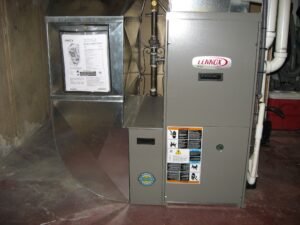
The Right Dimension Furnace for Your Home: A Comprehensive Guide
Intro
Picking the best size heating system for your home is important for making sure efficient heating and comfort during the chillier months. A heater that’s too small will not keep your house warm, while one that’s too big can cause unnecessary energy consumption and unequal heating. This guide will assist you determine the perfect heating system size for your home.
Understanding Furnace Sizing: BTU and Effectiveness
We determine the size of a furnace in British Thermal Units (BTU). One BTU is the energy required to raise the temperature of one pound of water by one degree Fahrenheit. When selecting a furnace, two key elements play a role: the BTU rating, indicating the heating system’s heating capability, and its efficiency rating, measured in Annual Fuel Utilization Effectiveness (AFUE).
Calculating Your Home’s Heating Needs
You need to compute your home’s heating requires to determine the right heating system size. The calculation thinks about elements like square footage, climate zone, insulation quality, window type, and house layout. Normally, you require roughly 30-60 BTUs per square foot. However, this differs based upon your home’s particular characteristics.
Environment Zone and Its Influence On Furnace Size
Your geographical location substantially influences the heating system size required. Residences in chillier areas, such as Nisku, need more BTUs per square foot than those in milder environments. Seek advice from a heating specialist for particular suggestions.
The Role of Home Insulation in Furnace Sizing
Great insulation reduces the amount of heat loss, indicating you can go with a smaller heating system. Assess your home’s insulation in the walls, attic, and windows. Upgrading insulation can be an economical way to minimize heating needs.
Considerations for Various Kinds Of Furnaces
There are different kinds of heaters, like gas, electric, and oil. Each type has distinct sizing considerations. Gas heaters prevail and efficient, electric heaters are more simple and much safer however often more pricey to run, and professionals install oil heaters where natural gas isn’t available.
Value of Expert HVAC Evaluation
A professional HVAC assessment is vital. Service technicians consider all variables, including ductwork and home layout, to recommend the ideal heating system size. They can carry out a Manual J calculation, the market requirement for determining heating and cooling loads.
Energy Effectiveness and Cost-Effectiveness
Picking a furnace with a high AFUE rating is important for energy efficiency and expense savings. Modern heaters have AFUE ratings between 80% and 98%, indicating the portion of fuel converted into heating. While high-efficiency heaters are more pricey upfront, they can cause considerable cost savings in the long run.
Resolving Common Misconceptions About Furnace Sizing
A typical mistaken belief is that a larger heating system is constantly much better. However, an extra-large heating system can cause brief biking, where the heating system often switches on and off, decreasing efficiency and life expectancy. On the other hand, an undersized heating system has a hard time to warm your home adequately.
Long-Term Benefits of the Right-Sized Heater
Picking the right-sized heating system has long-lasting benefits, including consistent comfort, lower energy expenses, decreased carbon footprint, and less upkeep concerns. It’s a balance between upfront expenses and long-lasting cost savings.
Conclusion: Making an Educated Decision
Picking the best size heating system is a decision that affects your home’s comfort and energy efficiency for several years to come. By comprehending the fundamentals of heating system sizing and seeking expert assistance, you can make an informed decision that guarantees ideal heating for your home.
Keep in mind, the key to an efficient and comfortable home lies in selecting the best heating system and regular upkeep and thinking about other elements like insulation and climate. With this comprehensive guide, you are well-equipped to pick the perfect heating system for your home, offering warmth and comfort for numerous winters.

Replace vs Repair Furnace: A Broad Guide
Intro
Deciding whether to replace or repair your heating system is a considerable decision for any house owner. The choice affects your immediate comfort and security and has long-lasting monetary ramifications. This comprehensive guide will check out different aspects to consider, assisting you make a notified decision.
Understanding Your Heater
Lifespan and Types
Heaters typically have a lifespan of 15-20 years. The two main types are gas and electric, each with different upkeep and operational expenses.
Signs of Problems
Common signs that your heating system might require attention include uncommon sounds, inconsistent heating, and increased energy expenses.
When to Think About Fixing Your Furnace
Repair is often the very best choice for minor concerns or heaters that are reasonably new and still under service warranty.
Cost-Effectiveness
Fixing can be more economical for minor concerns. However, frequent repairs may show a much deeper issue.
Ecological Impact
Repairs often have a lower ecological impact than replacing the whole system.
When Replacement is the Very Best Alternative
You must consider replacement if your heating system is near completion of its life expectancy, repairs are becoming significantly pricey, or if it could be more energy efficient.
Long-term Cost Savings
While the initial expense is higher, a new heating system can be more energy-efficient, saving you money on energy expenses.
Technological Improvements
Newer models feature innovative innovation, such as wise thermostats, which offer much better temperature control and efficiency.
Weighing Your Choices
Cost Analysis
Compare the expense of repairs with time versus the one-time cost of a new heating system.
Energy Effectiveness
Assess how your current heating system’s efficiency is affecting your energy expenses.
Home Value
Think about how a new heating system may increase the worth of your home, specifically if you prepare to sell in the future.
Expert Guidance
Seeking Expert Viewpoint
Talk to heating and cooling specialists to examine the state of your current heating system and get estimates for repair work and replacement.
Value of Routine Maintenance
Routine upkeep can extend the life of your heating system, whether you choose to repair or replace it.
Conclusion
In conclusion, deciding to repair or replace your heating system depends on different elements, including age, condition, expense, and energy efficiency. By thinking about these elements and seeking expert suggestions, you can decide that guarantees comfort, security, and monetary prudence for your home.
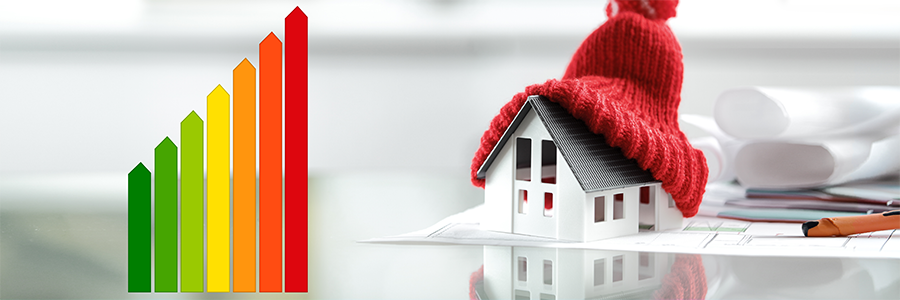
What Time of Year is the Least Expensive to Replace The Furnace?
Will a New Furnace Lower Your House Insurance Coverage?
Intro
Home upkeep can be a considerable financial investment, specifically when it involves important systems like heating. Among the most considerable expenses house owners deal with is replacing their heating system. However, timing this replacement can cause considerable cost savings. This post explores the very best time of year to replace your heating system, thinking about cost-effectiveness and functionality.
Understanding Furnace Replacements
The Requirement for Replacement
Before delving into timing, it’s vital to understand why and when you must replace your heating system. Common indications include frequent repairs, heating inadequacy, and the system’s age (typically beyond 15-20 years). Changing an outdated or malfunctioning heating system enhances heating efficiency and guarantees security and comfort during chillier months.
Aspects Influencing Furnace Prices
A number of elements affect heating system costs, including the kind of heating system, brand, capability, and the complexity of setup. Seasonal need is another considerable element, often ignored, yet it plays an important function in determining the expense.
Best Time for Replacement: Off-Season
Why Select Off-Season?
The off-season, primarily spring and early fall, is typically the cheapest to replace a furnace. The need for heater is lower during these periods than during the peak winter season. Lower need often leads to more competitive prices from producers and installers.
Advantages of Off-Season Replacement
- Lower Costs: Minimized need can cause discounts and more consumer negotiating power.
- Schedule of Technicians: HVAC service technicians are less busy during these times, making sure more versatile scheduling and quicker setup.
- Sufficient Time for Research: The off-season gives house owners enough time to research study different heating system models and choices without the pressure of immediate need.
Preparation Ahead
Using the off-season needs preparation. Expect the need for replacement and schedule it when the need is low. This foresight conserves money and prevents the trouble of a furnace breaking down in the middle of winter.
Winter: The Peak Season
Challenges of Winter Season Replacement
- Greater Prices: The need for heating system setup and repair work peaks during winter, resulting in higher costs.
- Hectic Schedules: Finding a service technician might be more difficult, and you may have to wait longer for a consultation.
- Emergency Replacements: If your heating system breaks down in winter, you may have to go with an immediate replacement, which leaves little space for expense contrast or negotiation.
Other Factors to consider
Energy Effectiveness and Rebates
Investing in energy-efficient models might be more pricey upfront however can cause long-lasting cost savings. Also, look out for refunds and tax credits used for energy-efficient home enhancements.
Value of Routine Maintenance
Routine upkeep can prolong the life of your heating system, postponing the need for replacement. It’s an important element of home care that you must take note of.
Conclusion
Timing your heating system replacement can cause considerable cost savings. The off-season, particularly spring and early fall, is typically the most economical duration for this financial investment. Preparation, thinking about energy efficiency, and keeping your current heating system can enhance costs and ensure a warm, comfortable home.
Intro
House owners often consider whether upgrading their home devices and systems can cause cost savings on their home insurance premiums. One typical concern is whether installing a new heating system reduces home insurance expenses. This post delves into how a new heating system setup may affect your home insurance, providing insights into insurance policies, threat management, and prospective cost savings.
Understanding House Insurance Coverage Premiums
Before diving into the specifics of heaters and insurance, it’s important to understand what elements affect home insurance premiums. Insurer examine different elements, including:
- Residential Or Commercial Property Age and Condition: Insurance coverage Representatives see newer homes with upgraded systems as lower risks.
- Area: Geographical location and local climate can substantially affect insurance rates.
- Safety Functions: The presence of alarms, smoke detectors, and other security devices can reduce premiums.
The Impact of a New Furnace on House Insurance Coverage
Setting up a new heating system in your home can have a number of ramifications for your home insurance:
- Minimized Danger of Fire and Gas Leakages: Modern heaters with innovative security features lessen risks like fire or gas leakages. This threat reduction can be favourable in the eyes of insurance service providers.
- Improved Energy Effectiveness: Newer heaters are often more energy-efficient, resulting in lower utility expenses and a minimized ecological footprint, indirectly affecting insurance considerations.
- Boosted Home Value: Upgrading to a new heating system can increase your home’s market value, which may affect the coverage you require.
Potential Insurance Coverage Discount Rates
Some insurance companies offer discounts for home enhancements that minimize threat. These may include:
- Protective Device Discounts: You may receive a discount if your new heating system contains innovative security features.
- Green House Discounts: Some insurance companies supply special discounts for installing energy-efficient appliances.
Documentation and Appraisal
To utilize a new heating system setup for insurance benefits, consider the following:
- Expert Installation: Make sure a certified expert installs your heating system, which can be a requirement for insurance benefits.
- Keep Records: Preserve all receipts and paperwork for the heating system purchase and setup.
- Notify Your Insurance Company: Alert your insurer about the upgrade. They might need an examination or extra paperwork.
Factors to consider Before Upgrading
While a new heating system can offer benefits, consider the following:
- Cost vs. Advantage Analysis: Evaluate if the long-lasting cost savings on insurance and energy expenses justify the initial expense of a new heating system.
- Insurance Plan Evaluation: Speak to your insurance representative to understand how a new heating system may particularly affect your policy.
Conclusion
Upgrading to a new heating system can reduce your home insurance premiums by decreasing threat and boosting your home’s security and efficiency. However, the impact differs based upon individual insurance policies and the particular features of the heating system. It’s a good idea to talk to your insurance service provider to understand the complete benefits and ramifications of a new heating system setup.
FAQs
Q: Just how much can I save on my home insurance by installing a new heating system?
A: Cost savings vary based upon the insurance service provider and the particular features of the new heating system. Talk to your insurance representative for comprehensive details.
Q: Are there any particular kinds of heaters that are more favourable for insurance discounts?
A: Heaters with innovative security features, high energy efficiency ratings, and those that fulfill particular ecological requirements are often more favourable.
How to Prepare for a Heating System Installation
Setting up a new heating system in your home is a considerable financial investment and an important upgrade to your home. It improves the comfort of your home and enhances energy efficiency. Proper setup preparation is important to ensure the setup procedure is smooth and hassle-free. This post will guide you through the required steps to prepare for a furnace setup.
Understanding Your Heating Needs
Examining Your Space: The first step is to examine the size of your space and understand the heating requirements. A too-large or too-small heating system for your home can cause inadequacy and higher energy expenses. Consulting with a heating expert to determine the best heating system size is essential.
Picking the Right Furnace: There are different heaters, including gas, electric, and oil. Each has pros and cons; the choice depends on your location, budget, and individual preference. Research and talk to experts to make a notified decision.
Pre-Installation Preparation
Picking a Certified Installer: We can not overemphasize the importance of picking a qualified and experienced installer. Try to find specialists with excellent reviews and proper certification. They will ensure a proper setup and guide you through the procedure.
Clearing the Area: Make sure the location where you prepare to install the heating system is clear of any mess. A tidy location provides simple access to the setup team and speeds up the procedure. Eliminate any important or vulnerable items from the vicinity to prevent accidental damage.
Getting ready for Downtime: Depending upon the complexity of the setup, your heating system might be down for a few hours to a day. Strategy accordingly, specifically if the setup is during chillier months.
Throughout Installation
Access to Your Home: Make sure the installers have simple access to your home, that includes making sure that parking is available and a clear path to the heating system location.
Interaction: Stay available to answer any concerns the installers may have. Clear communication can assist fix any concerns rapidly and ensure your setup goes as prepared.
Post-Installation Checks
Examine the Setup: Once the setup is total, inspect the deal with the installer. Make sure that the setup is total and that the location is clean.
Understanding the System: Have the installer describe the functioning of the new heating system, including how to change filters and the basic troubleshooting steps.
Service warranty and Documentation: Guarantee you receive all required paperwork, including service warranty details and operating manuals. Keep these files in a safe place for future referral.
Conclusion
Getting ready for a furnace setup involves comprehending your heating requires, selecting the best heating system, and picking a qualified installer. By following these steps, you can ensure a problem-free setup procedure and delight in the comfort and efficiency of your new heating system for several years to come. Keep in mind, a little preparation goes a long way in making sure a smooth and effective heating system setup.
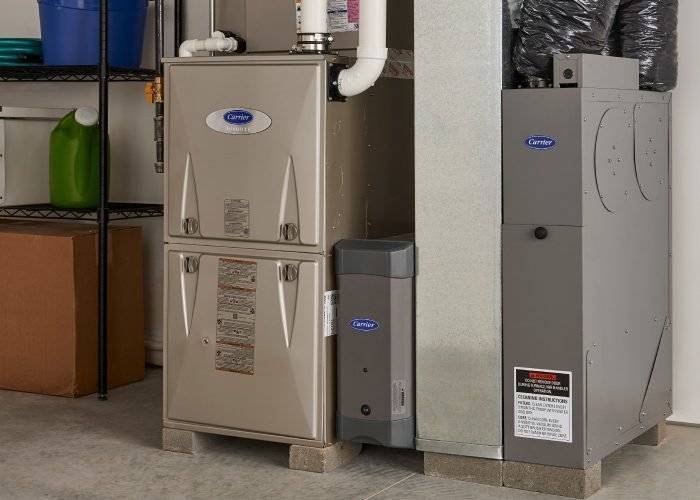
Our Work
